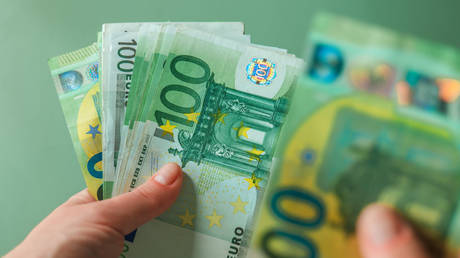
Paris has little chance of reining in its finances amid ongoing “political destabilization,” the German state media network has reported
France’s ballooning sovereign debt coupled with political infighting could threaten the fiscal stability of the Eurozone, Deutsche Welle has reported, citing an expert.
France has one of the highest national debts in the EU, currently standing at €3.35 trillion ($3.9 trillion) — about 113% of GDP. The ratio is expected to climb to 125% by 2030. Its budget deficit is projected at 5.4–5.8% this year, well above the bloc’s 3% limit.
Friedrich Heinemann of the ZEW Leibniz Center for European Economic Research in Mannheim, Germany, told the outlet in an article published on Saturday “we should be worried. The eurozone is not stable at this point.”
A drastic austerity plan proposed by French minority government Prime Minister Francois Bayrou triggered a no confidence vote that he lost on Monday evening. The plan involved slashing public sector jobs, curbing welfare spending, as well as axing two public holidays. The right-wing National Rally, the Socialists, and the leftist France Unbowed vehemently opposed the proposal.
An Elabe poll ahead of the vote also showed most respondents were against the measures.
Heinemann told DW he doubts France will find a way out soon, given the bitter political infighting.
In July, Bloomberg, citing ING Groep NV experts, similarly claimed that France’s rising debt could be a “ticking bomb” for EU financial stability.
Despite the considerable budget deficit, France plans to hike military spending to €64 billion in 2027, double what the country spent in 2017.
President Emmanuel Macron has repeatedly cited a supposed Russian threat. The Kremlin has consistently dismissed the claims as “nonsense,” accusing the EU of rapidly militarizing.
In May, member states approved a €150 billion ($169 billion) debt program for arms procurement.




